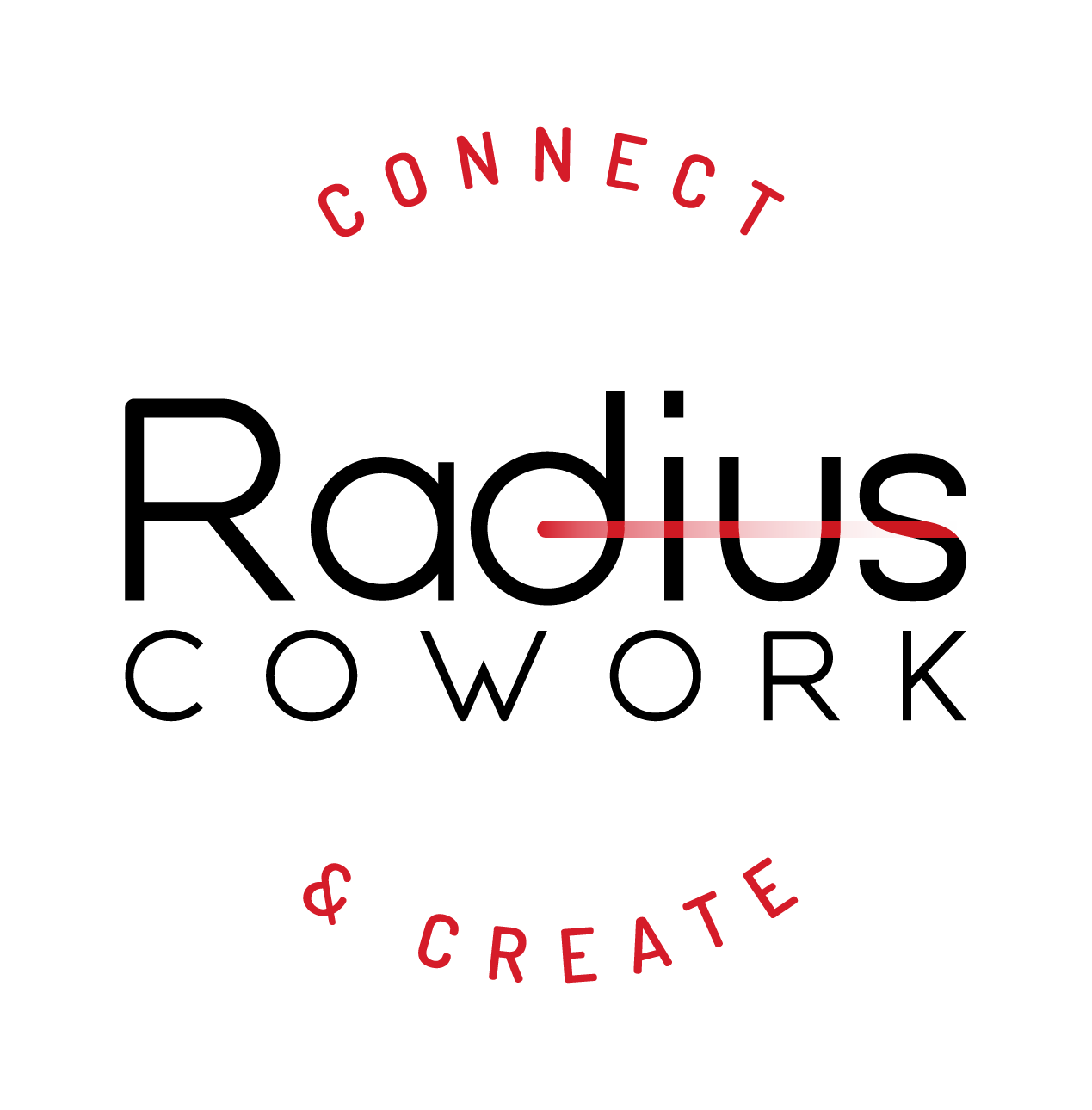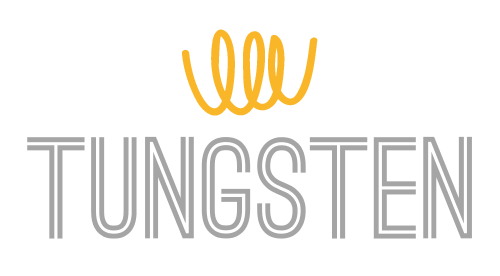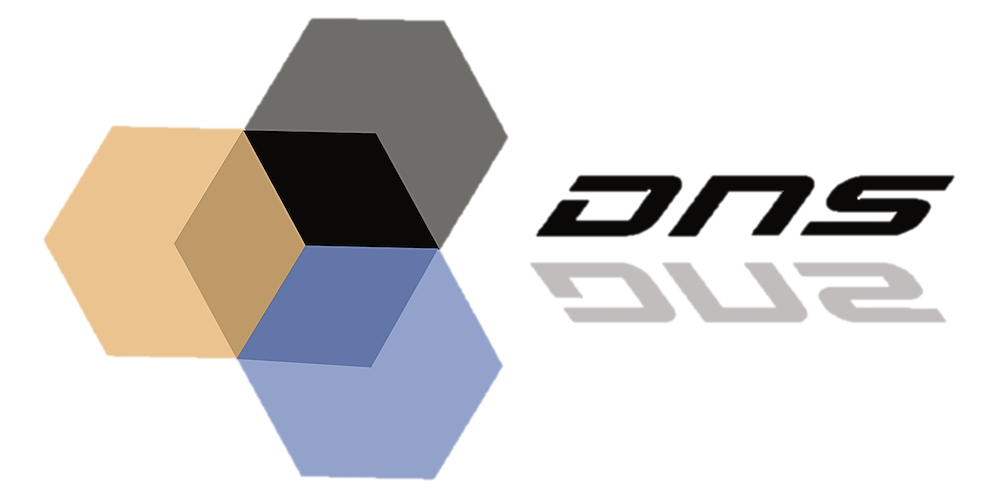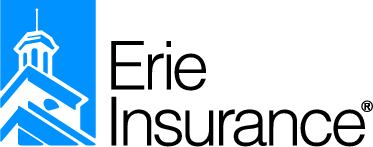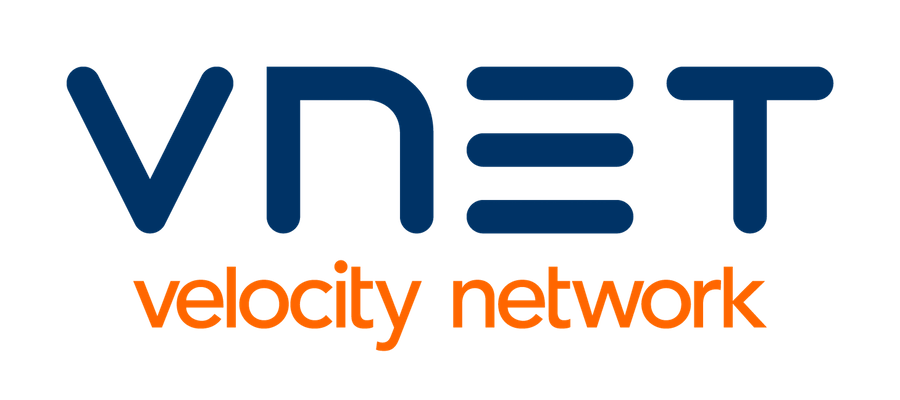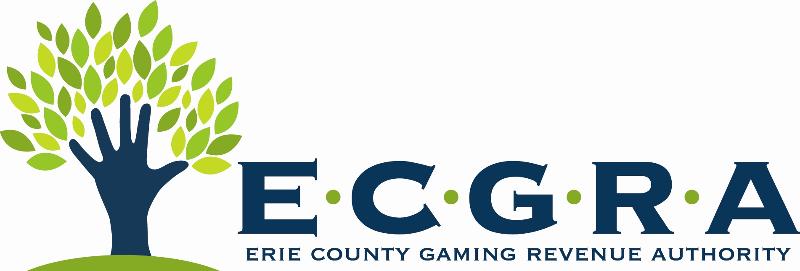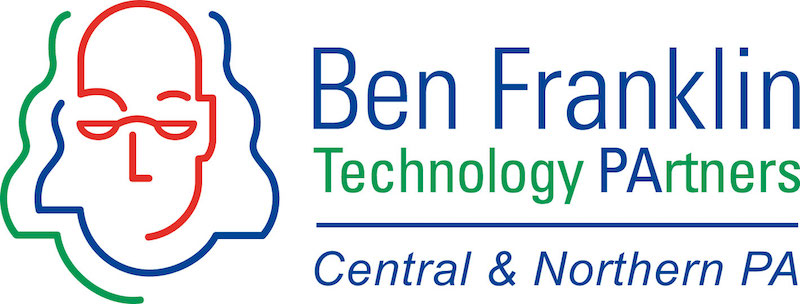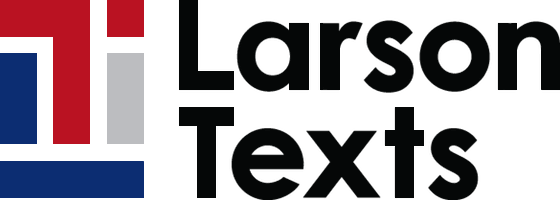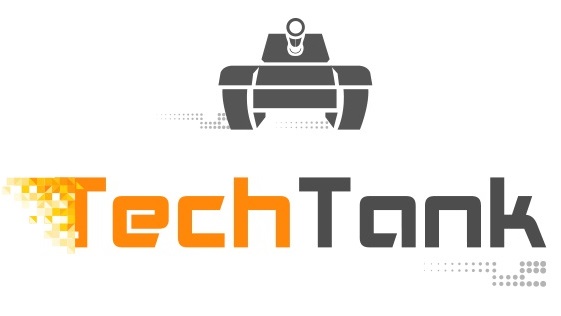8:00am - 8:50am
June 17, 2016 @ the Erie Art Museum

The second annual Erie Day of Code is a one-day, single-track conference for web developers, computer scientists, creatives, tech enthusiasts, and more! Through a series of talks from incredible speakers, and an after party to connect with your peers, we aim to help developers in the expand their skillsets, networks, and minds.
Talks this year are targeted at major areas in software engineering, from design through development to deployment. Erie Day of Code promotes open source in code, community, and ideology. We want to share as much as we can with you, and hope you will help share your knowledge with your peers!
Tickets are on Sale!
Registration starts at 8:00am so we're ready to go for the
first speaker at 9:00am!
You may bring your printed ticket to be
scanned, or we can look up your name at the registration table.
Stay up to Date
Subscribe to our mailing list for updates and ticket sales
Agenda
8:50am - 9:00am
Opening Statements
9:00am - 9:30am
Sweating the Details
As developers looking to write better code, we spend a lot of time talking about hexagonal architecture, DDD, event sourcing, microservices, the list goes on and on.
But doesn’t it seem like every time we try some new high level design idea, it’s always the next one that’s going to solve all of our problems?
“If only we had used CQRS on that last project, our code would’ve been so much more maintainable!”
What if we’re worrying about the wrong thing? What if it’s not the architecture that’s the problem, but the little lines of code on our screen that we work with every day?
There’s a symmetry between low level design and high level architecture, but you have to get the low level design right first. This talk is about zooming in the microscope a little bit and focusing on writing great code, one line at a time.
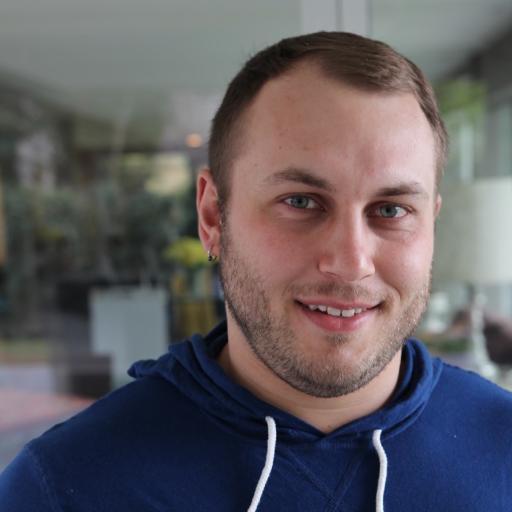
Adam Wathan
9:45am - 10:15am
Building a Startup in Erie
As a developer, you have probably thought, “I wonder what it would be like to start my own startup…“, and then you romanticize the idea in every way (#famous #cashmoney #imtheboss). Mat Silva has actually launched a startup and will talk through the realities of launching & running a funded startup. You will hear his startup’s story, get first hand insight from his success & failures and ultimately get a better understanding of what it takes to actually launch a technology startup.
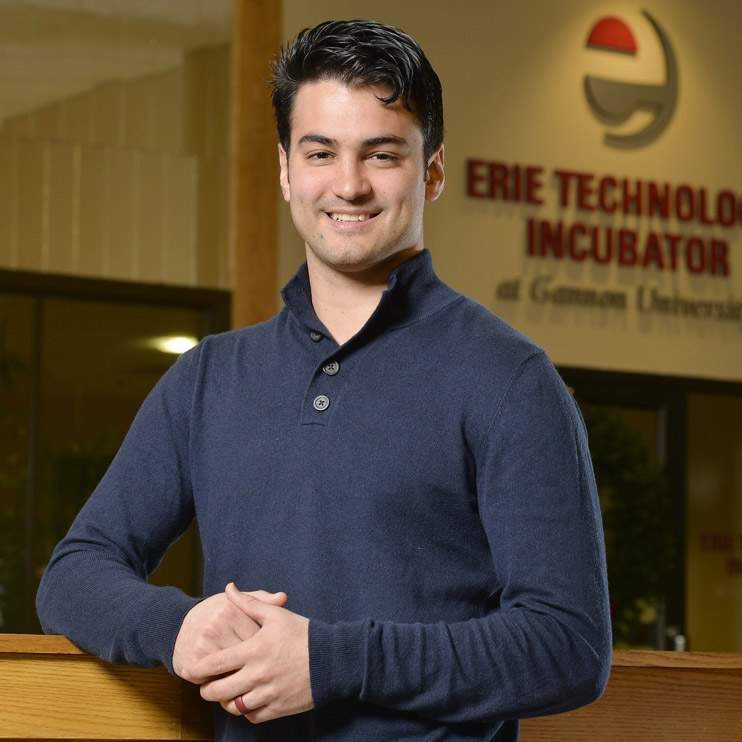
Mat Silva
10:30am - 11:00am
Docker Time! C'mon grab your friends...
We’re going to very distant lands. With Engine and Compose, Registry and Machine, the fun will never end, it’s Docker Time!
The Docker platform allows you to implement lightweight containers to run small pieces of functionality in an isolated manner inside of either a virtual machine (e.g. AWS, OpenStack, VirtualBox) or on non-virtualized physical hardware (e.g. a datacenter, directly on your fancy laptop).
Getting started running containers with Docker is relatively simple and takes just a few steps. Anyone who knows how to open the terminal and run a few commands can have a container up and running in a matter of minutes. Like with most new technology platforms, the barrier to entry for most folks seems to be figuring out how Docker can be implemented in a way that solves more problems than it creates.
We’ll go over some practical examples of implementing the Docker platform starting with container building and use in local development, through the process of continuous integration and delivery, to actually deploying containers in an intelligent way in production.
You should be able to walk away with an idea of how Docker might be able to help in your day to day technological adventures.
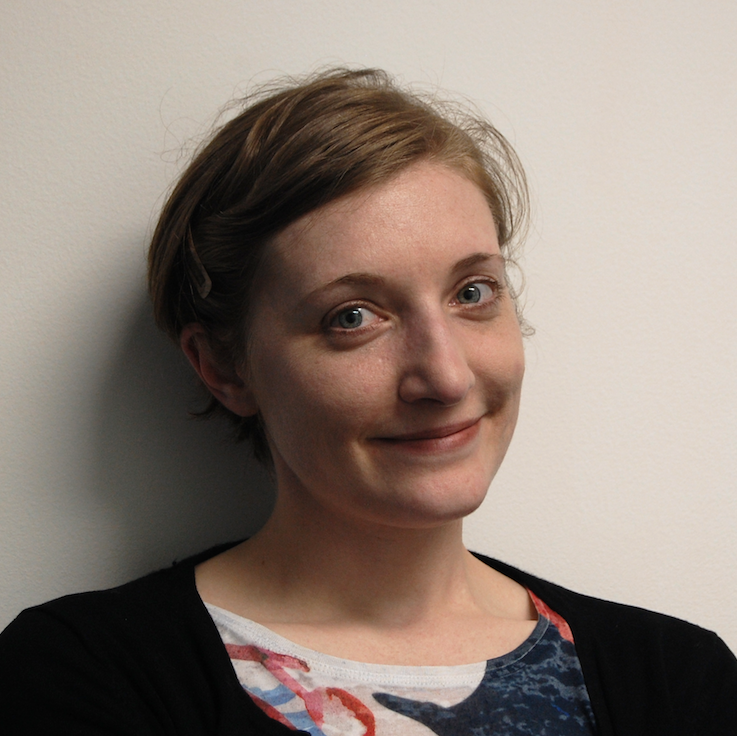
Jessica Major
11:15am - 11:45am
Project Utopia
From in-house product teams to remote freelance; from greenfield to legacy, many of us find ourselves on projects that require us to work with team members across disciplines and clients in different domains. How do we work effectively on these teams? This talk, tag-teamed by a Developer and a Product Designer, will showcase some methods that can improve the way you work collaboratively with your team. When working on a cross-disciplinary team, it’s important to know how and when to pair up, delegate tasks, and organize phases of the project from discovery to deployment. We’ll show you how to get answers for the questions you have. We’ll give you the language you need to understand all those pesky design terms, and you’ll be given examples of effective dev/design pairing, facilitating effective client meetings, and managing sprints.
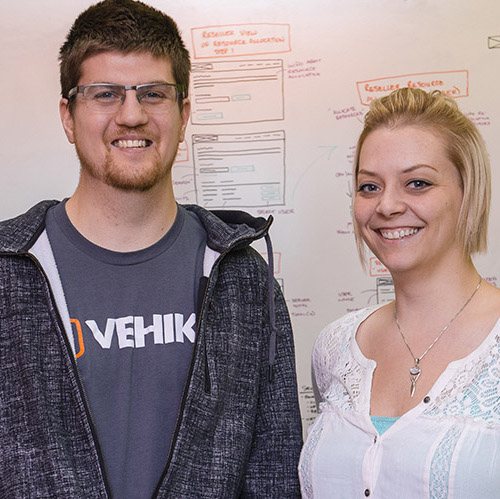
Jesse O'Brien & Caryn Humphreys
11:45am - 1:15pm
Lunch
1:30pm - 2:00pm
Lightning Talks
Do you have something you want to teach or an awesome project to show off? Come early and be one of 5 people to sign up to give a lightning talk!
2:15pm - 2:45pm
Unleash the Power of NO
One of the first words we learn as children is “NO”. Yet, somewhere between learning our A-B-Cs and launching our careers as technologists, we forget about the power that NO holds. “NO” is one word that should be prominently featured in every technologist’s lexicon. As technologists, we’re fortunate to possess skills that are in high demand. Demand is often so high that we’re mistaken for bottomless wells of time and energy that can be continuously tapped. There comes a point where we - and our leaders, advocating on our behalf - must unleash our power of saying NO: NO to that last tweak, NO to that final copy change, or NO to the brand new feature that just fell out of the sky and on to our backlog.
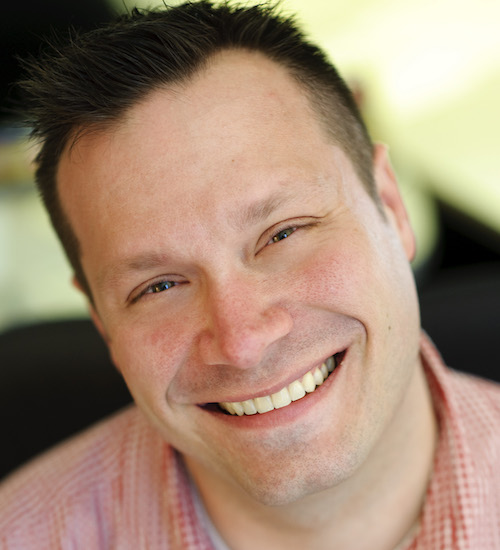
Tim Bickerton
3:00pm - 3:30pm
Building "Serverless" Software with AWS Lambda
Jon was asked to build a fuzzytext search interface for information stored in the SEC’s massive Edgar database which holds all of the electronic documents filed with the SEC. By leveraging managed ElasticSearch, S3 for document storage, and the asynchronous job processing power of AWS Lambda he was able to build a solution that required absolutely no ongoing server maintenance for his client.
In this talk, Jon will explain how he was able to:
- Parse gigabytes of info without IP activity restrictions
- Provide an easy way to scale or disable the application
- Continuously monitor parsing activity and application health
You will learn about the different services utilized with their strengths and weaknesses as well as alternative services like Iron.io which allows you to write code in many different languages. He’ll also talk about different ways async processing can be applied to other situations such as managing contact forms for static websites as FormKeep does.
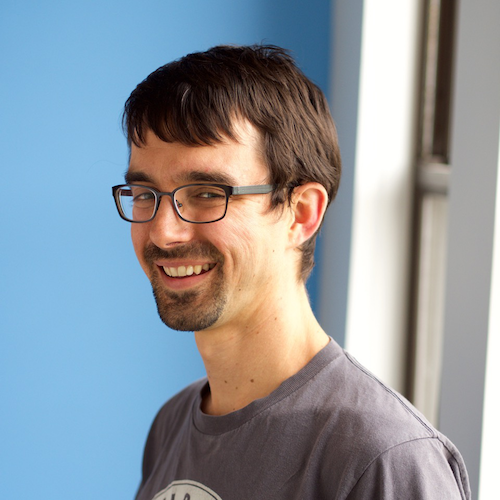
Jon Knapp
3:45pm - 4:15pm
So You Want to Deploy That...
No one writes code just to look at it in dev. The goal of software is to deploy it to a production environment and get it in front of users. Users want stability, reliability, and scalability.
How do we get our software and tools to a level where they can provide those features? How do you know that you have met those requirements and that the system is ready for a production deployment? What do stability, reliability and scalability look like as features? Does that new library, tool or framework meet those requirements?
It is not enough for a tool to meet a software requirement, you must also think about how putting it into production will affect the maintenance and support of the entire system. The business must be willing to invest in making it production ready and the operations staff must be able to provide ongoing support.
In this talk you’ll be walked through the questions you need to ask in order to ensure production readiness and shown what techniques to use to develop production ready systems.
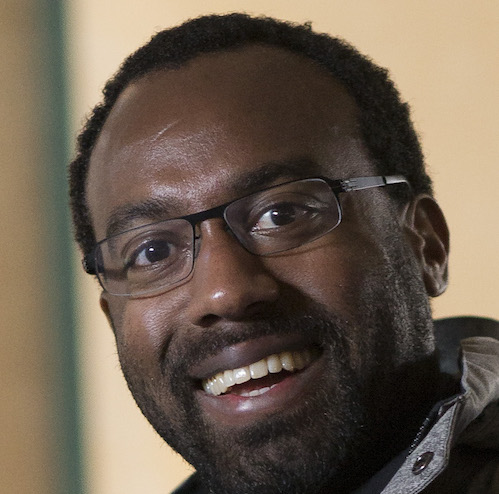
André Henry
4:30pm - 5:00pm
Thinking Functionally
“Functional” programming languages - such as Scala, Elixir, Clojure, and Haskell - are rapidly gaining in popularity. Even what many would consider “traditional” programming languages - such as Java, Ruby, and JavaScript - are adding “functional” aspects. But what does it mean for a language or program to be functional? And why are people claiming that it will help build better, cleaner code? We’ll explore the foundations of the functional paradigm, and how you can use it in your own development to help improve software quality. This applies even if you are coming from an imperative or object-oriented background, or you are using a language which is not normally considered “functional”.
This talk does not presuppose any knowledge of any of the languages listed.
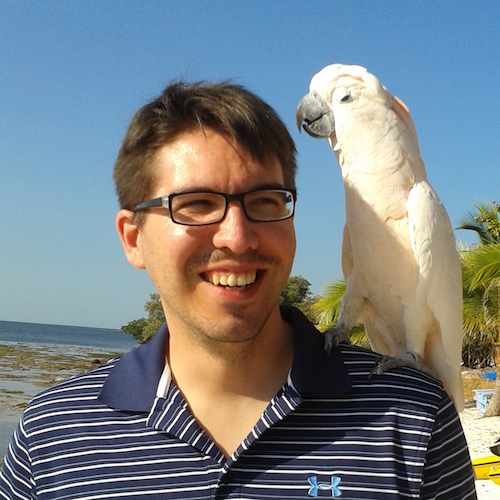
Bill Laboon
5:00pm - 9:00pm
After Party at the Brewerie!
Come join us at the home of the first Erie Day of Code, The Brewerie, in an after party filled with great conversations, new friends, and even some hacking! We will be occupying the main hall, and will also have access to the outdoor area by the tracks if you’d like to be outside for a while. If you and another developer from the day happen to have a great idea you’d like to work on, we’ll have tables available for you to develop at, or simply play games at if talking loudly in a social setting is not your thing.
The downtown trolley will be available all day for free to run up and down State St. (Erie Art Museum is on 4th, Brewerie is on 14th) if you’d like a lift to or from the after party, but you can also park your car outside or very close to the Brewerie, or you can take a nice stroll through downtown. Organizers and volunteers will be available to walk you to your vehicle.
Speakers

Adam Wathan
Sweating the Details
Host of
Full Stack Radio
and author of
Refactoring to Collections.
Senior Developer at Tighten Co..

Jesse O'Brien & Caryn Humphreys
Project Utopia
Laravel old-guard, Golang and space enthusiast.
UX aficionado, board gamer, expat currently conquering Canada
Web Developer and Product Designer at Vehikl.

André Henry
So You Want to Deploy That...
Systems Engineer at Think Through Math.
Owner of really powerful lasers.

Tim Bickerton
Unleash the Power of NO
VP of Product Development and Operations
at Think Through Math.
This speaker is brought to you by the letters PMP, MBA, MS, CSM, & CSPO.

Jon Knapp
Building "Serverless" Software with AWS Lambda
Owner of
Coffee and Code.
Lover of tacos.

Jessica Major
Docker Time! C'mon grab your friends...
DevOps Engineer
at Deviant Art.
Lover of animals. Hero of Servers. Slayer of bugs.

Bill Laboon
Thinking Functionally
Visiting Lecturer at the University of Pittsburgh
Author of
A Friendly Introduction to Software Testing.
Venue
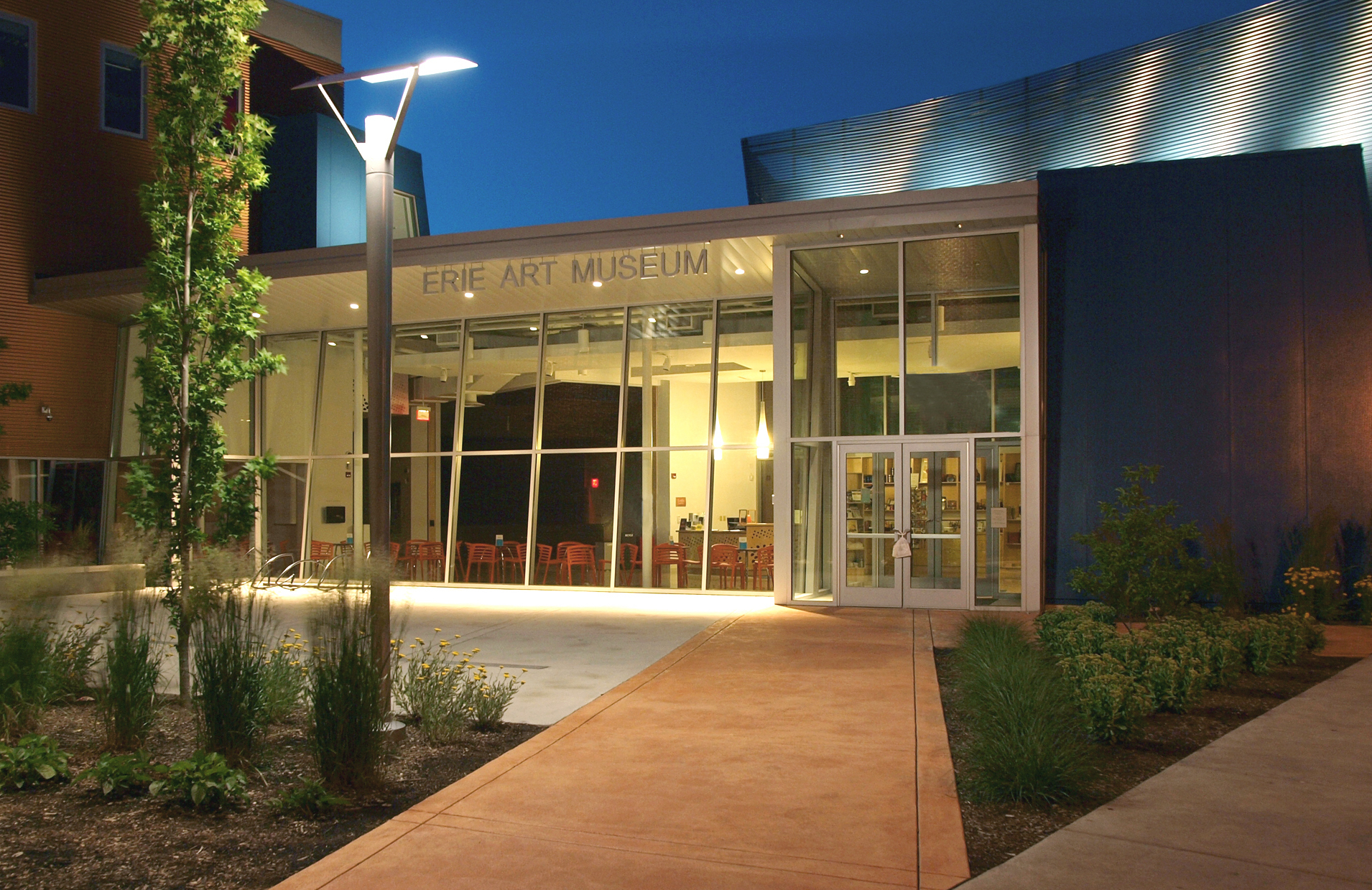
Erie Art Museum
411 State St.
Erie, PA 16501
The Erie Art Museum is one of the best places in Erie to hold events. The historic downtown gallery building blows out to include an enormous modern architectural wing with an event space and café. The building Spans most of the block between 4th and State St., and 5th and French St. The conference entrance will be through the large glass doors of the Wave Café on 5th street. Once inside, the large gallery hall with the main stage for Erie Day of Code will be immediately to your left. You're more than welcome to check out the various collections at the museum during intermissions or lunch the conference for free!
Parking information coming soon
Lodging
Tourism is huge in Erie, so if you're coming in from out of town there are plenty of places for you to stay. Here are some options near by:
Walking Distance
Sheraton Erie Bayfront Hotel
0.5 miles (10 minute walk) from the Venue
55 W Bay Rd. (Directions)
Erie, PA 16507
The hotel of choice for the conference. It sits on the beautiful Erie Bayfront at the end of Dobbins Landing, and gives you an awesome view of the bay or of the Erie skyline. It is also connected to an outdoor tiki bar!
A Bit Further With Attractions
Courtyard (Marriott) Erie Ambassador Conference Center / Hotel
11 miles (14 minute drive) from the Venue
7792 Peach St. (Directions)
Erie, PA 16509
Affordable suites, across the street from Splash Lagoon, down the road from the Millcreek Mall and other shopping centers, and directly off of I-90. Venue is a straight shot down Peach St., then right onto 5th.
If you'd prefer to avoid walking or driving to and from the venue while in town, Erie has a bus line that runs up on State St. most of the day and Uber has service here as well.

